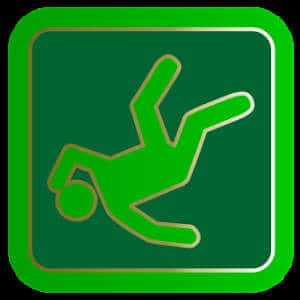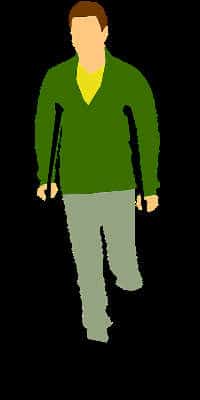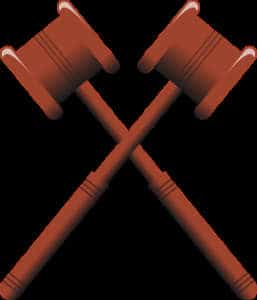If you’ve recently been injured after slipping and falling on someone else’s property, such as a home, business, school, hospital, or anywhere else, you may be wondering about your legal rights. Accidents happen, but sometimes they only happen because of negligence. When a dangerous condition ends up causing an accident with serious injuries, the victims of those injuries deserve financial support for the damages related to the accident.
It’s common for people in this situation to wonder what the legal process is like for filing a slip and fall lawsuit. Our Philadelphia slip and fall lawyers specialize in these cases and have broken down the process to its main elements. Having a better understanding of what to expect can help provide some peace of mind and ease your nerves during this stressful time.
Here is the typical process of a slip and fall personal injury lawsuit in Pennsylvania:
Seeking Medical Treatment
After being injured in a slip and fall accident, seeking medical treatment should be your first priority. It’s important to get the care you need so that your injury doesn’t get worse than it needs to be and to begin developing a plan for your recovery.
If you decide to file a lawsuit, your medical records will also be an important piece of evidence. In order to have a strong case, it’s important to document the extent of your injuries, the required treatment, and both the economic and noneconomic costs of your injuries.
Did You Fall Because Of Negligence?
Not all slip and fall accidents are eligible for personal injury lawsuits. In order to have grounds for a case, you must prove that your accident occurred due to negligence.
Property owners have a duty of care to keep their properties safe and free of hazards which could cause injuries to residents, guests, or customers. When a preventable dangerous condition causes a slip and fall accident, the injury victim could have grounds for a lawsuit against the property owner based on negligence.
Determining if negligence played a role in your accident often requires a consultation with an experienced Philadelphia slip and fall lawyer.
Seeking Legal Guidance & Preparing A Complaint
After speaking with a lawyer and determining that you have a case, your lawyer will prepare a complaint explaining the details of your claim. This will include a summary of the incident, with facts like:
- The person injured (plaintiff) and the property owner named in the complaint (defendant)
- A description of how the slip and fall happened
- Who is allegedly responsible for the accident, and
- How much money is being sought in damages?
Your complaint must be filed in the court where you plan to file your lawsuit, and you must serve both the complaint and a summons on the party you’re planning to sue. The summons will require the defendant to file a response to the complaint within 20 days.
The Defendant’s Answer To The Complaint
The defendant will then file a response, or an Answer, to your complaint. This response will either admit or deny each allegation in your complaint and set forth “affirmative defenses” – or possible legal defenses limiting their liability.
The Discovery Phase
During this phase, both you and your lawyer and the defense will learn as much information as they can about the incident.
This typically involves a written discovery phrase, in which you’ll be required to answer questions under oath. There are also requests for production, which are requests to produce objects or documents related to the case.
The discovery phrase time frame varies, and could be anywhere from three months to multiple years – it depends on how complex the case is, how long your medical treatment is, and your local court’s schedule.
Pre-Trial Motions
Before the case goes to trial, both parties may file specific pre-trial motions to resolve certain issues. These motions are usually filed during the discovery phase.
Some common pre-trial motions include:
- Motion to Dismiss – The defendant can file this if they believe the lawsuit is invalid because of a legal technicality.
- Motion to Compel – Either party has the right to file this motion to ask the court to order another party to do something it will not agree to do. This could be used to ask the court to order the other party to produce certain documents or appear for a deposition.
- Motion for Summary Judgement – This motion can be filed by either party if they believe there are no facts to support the other party’s claims or defenses. If granted, this judgment is final and the case is over.
- Motion in Limine – his motion allows either side to request to keep certain evidence out of the trial if it’s deemed too prejudicial. A common example in personal injury cases may be if the defendant has liability insurance to cover all or part of damages assessed, that fact may be concealed as the jury could be more likely to award a judgment.
Mediation and Mandatory Settlement Conferences
Not all slip and fall lawsuits go to trial. It’s common for one or both parties to attempt to resolve the case without a trial through either mediation or settlement conferences.
Mediation is usually arranged by the parties themselves with the assistance of their own mediator, while settlement negotiations are often court-ordered.
These discussions usually happen near the end of the discovery phase. If you and your lawyer agree with the defense on a settlement amount, you’ll be awarded that financial compensation.
What Happens If The Case Goes To Trial?
If no settlement is reached by the end of the discovery phase, then the case will proceed to trial. Slip and fall cases generally take between two and five days to finish.
Evidence will be presented, which generally will seek to prove the following things:
- A dangerous condition caused your accident and subsequent injuries
- The property owner or an employee knew or should have known about the dangerous condition
- The dangerous condition was not properly addressed
- Your injuries have resulted in economic (and possibly noneconomic) damages
The jury will make a decision based on the evidence and testimony provided. If they determine that the property owner’s negligence caused your injuries, then you will be awarded an amount of financial compensation based on the damages you’ve suffered.
Collecting Your Financial Compensation
If the court rules in your favor, then the defendant (and possibly their insurance provider) will be required to pay the amount awarded to you within 30 to 60 days. If you have any issues collecting your financial compensation, your lawyer may need to take additional legal action to force collection.
